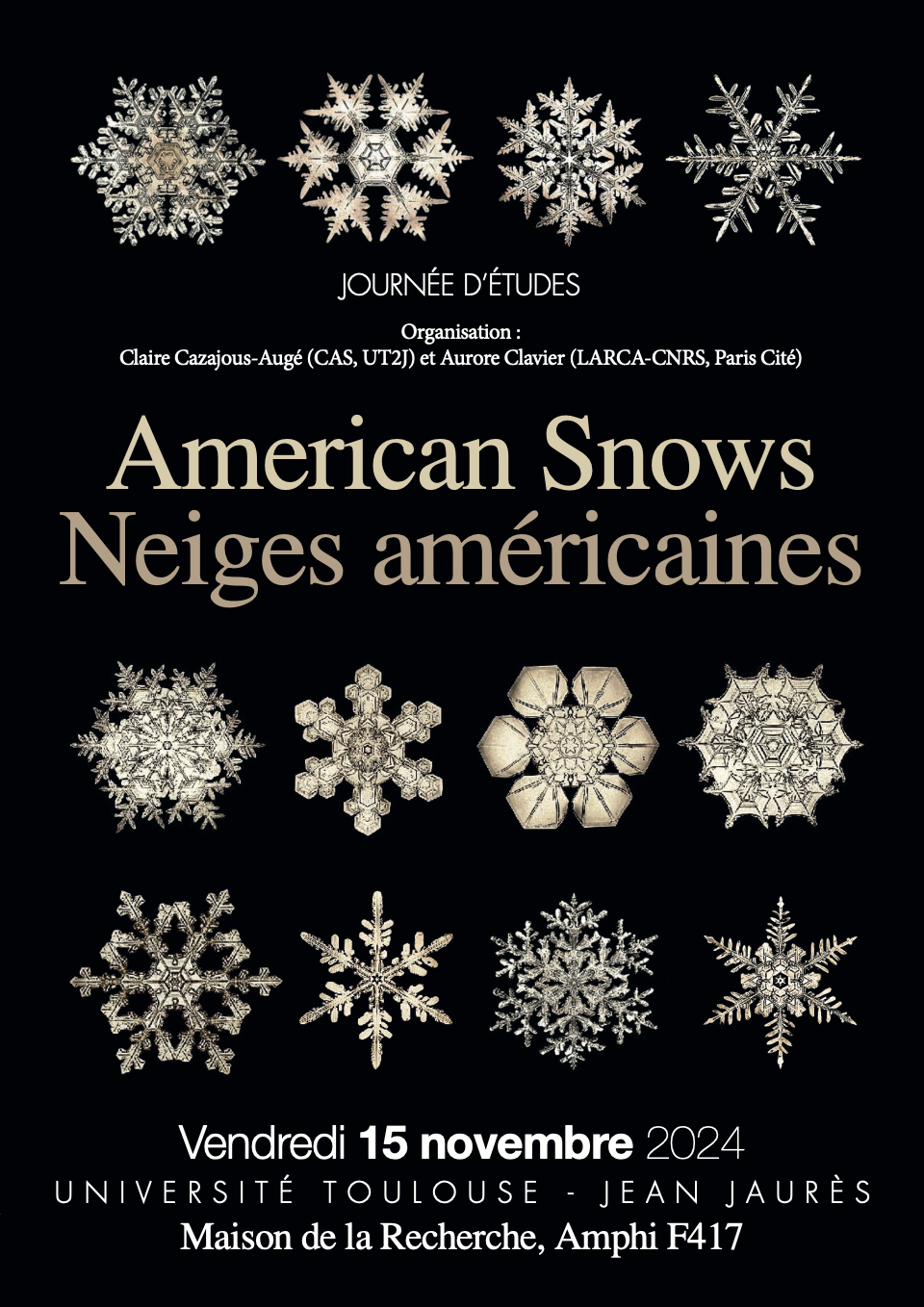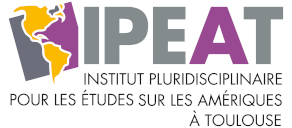-
Partager cette page
Journée d'études : "American Snows. Neiges américaines"

Le vendredi 15 novembre 2024 dès 9h à la MDR, Amphi F417
In Snow in America (1997), Bernard Mergen states that snow has played a major role in the construc- tion of a certain political, cultural, and artistic iden- tity in the United States. As a climatic phenomenon, a protean symbol, an aesthetic motif, snow has mo- deled Americans’ relationships to their history, their territory, more-than-human worlds, and with their cultural expressions.
While many Indigenous nations’ life ways have been shaped by their capacity to adapt to harsh climates, the colonial conquest of icy territories evinces the attempt to dominate radically different spaces than Europe and to master the impermanence of this element. Nonetheless, snow jeopardizes any desire to control the world both physically and intellectually. For Hartmut Rosa, snow “is literally the pure form in which unavailability manifests itself.” Just as snow slips and melts between the fingers of whoever wants to seize it, it will thwart previsions, reshape environments, impose new rhythms, and change percep- tions. It can thus lead to intellectual wanderings and recreative or contemplative moments that enable artists to explore new literary, pictorial, and photographic spaces, opening to a new “distribution of the sensible” (Jacques Rancière) and revealing unsuspected political and cultural implications.
In the wake of Mergen’s work, this first one-day conference in a cycle of two will aim to delineate the cultural history and geography of snow as they take shape in American literary and artistic works from the eighteenth century to our day. From national boundaries to a wider North American space, if not more re- mote world projections, we will focus on the representations and the roles of snow in the making of American territory, of the movements and relationships between its human and other inhabitants, and in the development of cultural forms belonging to these environments.
Organisation : Claire Cazajous-Augé (CAS, UT2J), Aurore Clavier (LARCA-CNRS, Paris Cité)



